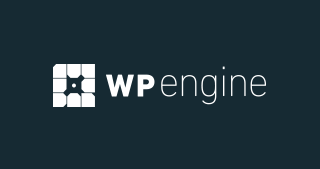Introduction
In the age of digital learning, online platforms have become essential tools for acquiring knowledge across various subjects. Whether you’re a student aiming to improve your academic performance or a professional looking to expand your skill set, the choices available for quality education online are vast. Two platforms that stand out are edX and Khan Academy—both renowned for their high-quality content but with distinct approaches to learning. While edX offers university-level courses and degrees, Khan Academy provides free educational resources that cater to K-12 students and beyond.
In this comprehensive comparison, we’ll take a closer look at the differences between edX and Khan Academy, exploring their features, pricing structures, audience, and more. By the end, you’ll have a clear understanding of which platform may better suit your educational needs.
Overview
Overview of edX
edX is a non-profit online education platform founded in 2012 by Harvard University and MIT. It partners with prestigious institutions and organizations, such as Oxford, Microsoft, and IBM, to offer a wide range of courses in subjects like computer science, business, healthcare, and the humanities. edX’s mission is to increase access to high-quality education for everyone, providing learners with a selection of free and paid content, including verified certificates, MicroMasters, and full degree programs.
With its rigorous academic offerings, edX caters to learners looking for both career development and formal education. Its courses can be audited for free, while learners who want certificates can opt for paid versions. Additionally, edX offers MicroMasters and MicroBachelors programs, allowing students to earn university credits.
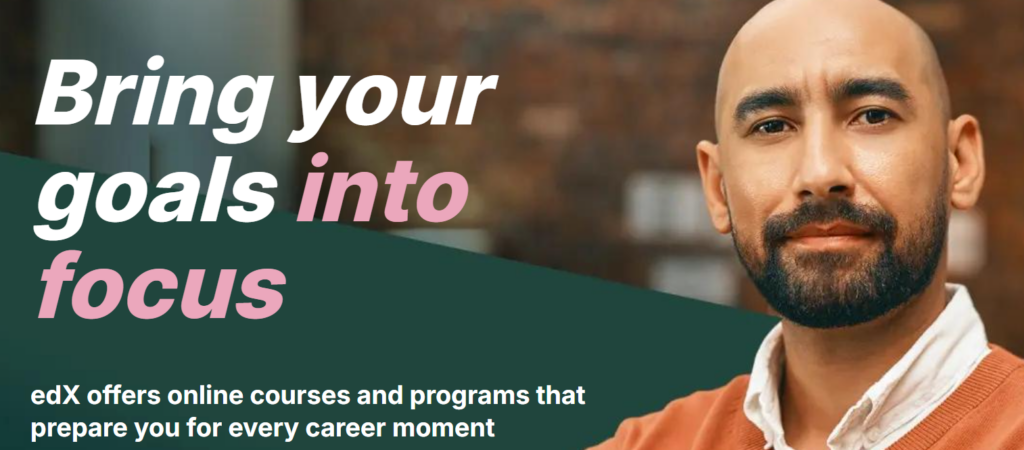
Overview of Khan Academy
Khan Academy is a non-profit organization founded in 2008 by educator Salman Khan. Its platform offers free educational resources for students ranging from kindergarten to early college, with a focus on subjects such as math, science, economics, and history. Khan Academy is especially popular among K-12 students, though it also provides resources for learners interested in higher education topics like calculus and computer programming.
Unlike edX, Khan Academy focuses on providing free, comprehensive educational tools that include interactive exercises, video tutorials, and progress tracking. While it does not offer formal certifications or degrees, Khan Academy’s mission is to provide a free, world-class education for anyone, anywhere.
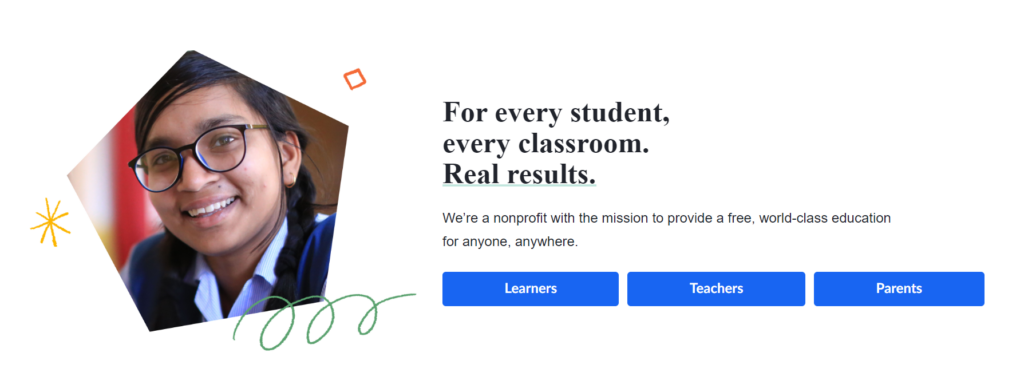
Features
1. Course Catalog and Variety
- edX: edX offers more than 3,000 courses across a wide range of subjects, including technology, humanities, business, engineering, and the arts. These courses are created by leading universities and organizations, ensuring a high level of academic rigor. edX caters to various levels of learning, from introductory courses to advanced degree programs. Courses are generally suited for higher education and professional development, offering learners the opportunity to earn verified certificates, university credits, and even full degrees.
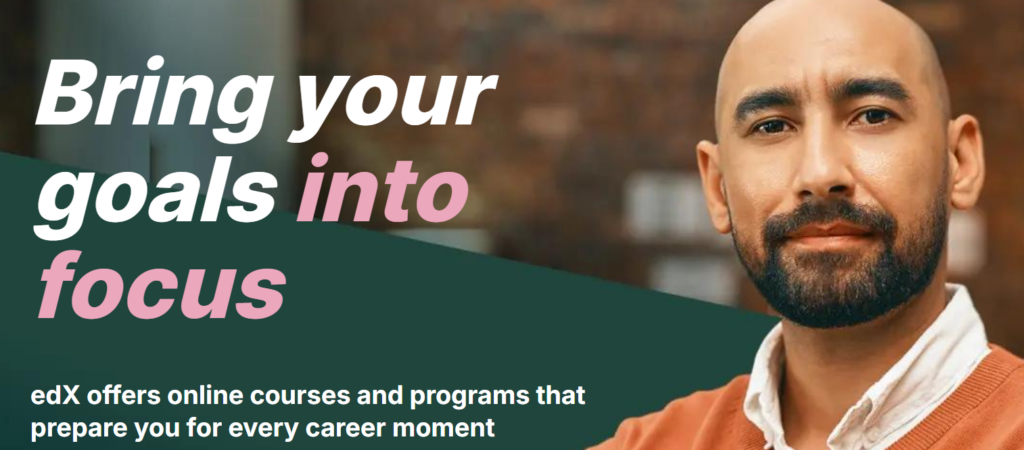
- Khan Academy: Khan Academy’s catalog is more focused on K-12 education, covering subjects like math, biology, chemistry, physics, economics, and history. The platform’s content is aligned with U.S. educational standards, making it an ideal resource for students in school or those preparing for standardized tests such as the SAT, MCAT, and LSAT. Although Khan Academy has expanded into some advanced topics like calculus and computer programming, its core strength lies in providing a free education in foundational subjects.
2. Course Delivery Style
- edX: edX courses are often lecture-based and include quizzes, discussion forums, peer interactions, and graded assignments. Most courses are self-paced, allowing learners to complete them at their own convenience. Some programs, particularly degree programs, follow a fixed schedule. edX also provides an audit option for those who want to access course materials for free but are not interested in earning a certificate.
- Khan Academy: Khan Academy’s courses are delivered through short, easy-to-understand video tutorials that break down complex concepts into bite-sized lessons. These lessons are accompanied by interactive quizzes and exercises, ensuring that learners can practice what they’ve learned immediately. The platform is self-paced and allows users to track their progress through personalized dashboards, which makes it ideal for students learning at their own pace.
3. Partnerships
- edX: edX has partnered with over 160 top universities and institutions around the world, including MIT, Harvard, Berkeley, and Microsoft. These partnerships allow edX to offer courses created by leading academic and industry experts, ensuring that the content is current, accurate, and highly respected. In addition to academic courses, edX also collaborates with companies to offer industry-relevant certifications.
- Khan Academy: While Khan Academy does not have formal partnerships with universities, it has collaborated with institutions such as the College Board (creators of the SAT) to provide test prep materials. Khan Academy’s content is developed by educators and subject matter experts and is tailored to align with national education standards. Its focus is more on general knowledge dissemination than academic partnerships for certifications or degrees.
4. Certification and Degrees
- edX: edX offers a range of certification options, including verified certificates, MicroMasters, and full Master’s degrees. Learners can earn university credits through specific programs, such as the MicroMasters, which can be transferred to degree programs at participating universities. This makes edX an ideal platform for individuals looking to gain formal qualifications or further their careers.
- Khan Academy: Khan Academy does not offer any formal certifications or degrees. Instead, it focuses on helping learners build foundational knowledge. While you can track your progress and earn badges within the platform, these do not translate into formal credentials.
5. Learning Support
- edX: edX provides discussion forums where learners can interact with instructors and peers. While many courses offer feedback on assignments, the level of instructor involvement can vary. For paid programs, especially degree courses, learners may have access to more direct support from academic advisors.
- Khan Academy: Khan Academy provides learners with instant feedback on exercises and quizzes, helping them to quickly identify areas where they need improvement. While there is no instructor-led support, the platform offers detailed explanations and hints for each problem, making it an effective self-study resource. Progress tracking and personalized dashboards further enhance the learning experience.
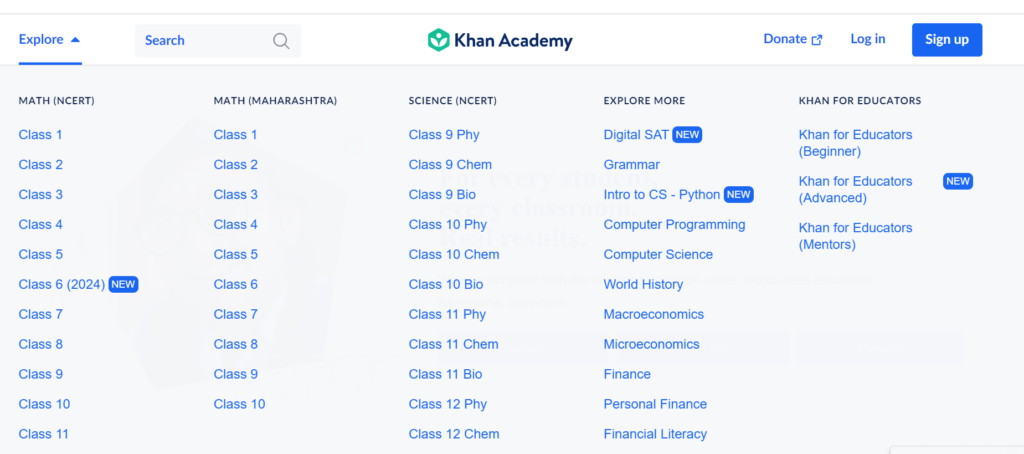
Pricing
edX Pricing:
- Audit Option: Most edX courses can be audited for free. This allows learners to access the course materials without submitting assignments or receiving a certificate.
- Verified Certificates: For learners who want a certificate upon completion, edX charges a fee ranging from $50 to $300 per course, depending on the subject and institution.
- MicroMasters & MicroBachelors: These programs cost between $500 and $1,500 and can lead to university credits.
- Degree Programs: Full degree programs on edX, such as Master’s degrees, can range from $10,000 to $25,000, making them a more affordable alternative to traditional on-campus programs.
Khan Academy Pricing:
- Free Access: Khan Academy is completely free for all users. The platform does not charge for any of its resources, including courses, practice exercises, or test prep materials. It operates on donations and grants from philanthropic organizations, ensuring that its educational content remains accessible to everyone.
FAQ
1. Can I earn a full degree on these platforms?
- edX: Yes, you can earn a full degree on edX. The platform offers a variety of fully accredited Master’s degrees in collaboration with leading universities.
- Khan Academy: No, Khan Academy does not offer degrees or formal certifications. Its primary focus is on providing free education for K-12 students and lifelong learners.
2. Which platform offers more free content?
- Khan Academy: Khan Academy offers all its educational content for free, covering a wide range of K-12 subjects, test prep, and some college-level courses.
- edX: While edX offers free access to many courses through its audit option, learners must pay to receive certificates or access graded assignments.
3. How long do courses take to complete?
- edX: Courses on edX typically range from 4 to 12 weeks, depending on the subject and whether they are self-paced or instructor-led. Degree programs can take 1 to 2 years to complete.
- Khan Academy: There are no set durations for courses on Khan Academy. Learners can progress at their own pace, making it suitable for both quick reviews and in-depth study.
4. Do these platforms offer financial aid?
- edX: Yes, edX offers financial aid for its paid courses and certificates. Learners can apply for assistance to reduce the cost of enrollment in verified tracks and degree programs.
- Khan Academy: Since Khan Academy is completely free, financial aid is not necessary.
5. What age groups do these platforms cater to?
- edX: edX is designed for higher education learners, including college students, professionals, and those looking to pursue degrees or professional certifications.
- Khan Academy: Khan Academy primarily caters to K-12 students, though it also offers resources for learners preparing for standardized tests like the SAT and adults seeking to strengthen their foundational knowledge.
6. Which platform is better for career advancement?
- edX: edX is better for career advancement due to its professional certificates, MicroMasters, and full degree programs, which are recognized by employers and academic institutions.
- Khan Academy: Khan Academy is not focused on career advancement but is excellent for improving foundational knowledge and academic performance.
Conclusion
Both edX and Khan Academy offer incredible value to learners but serve very different audiences and educational needs. edX is geared toward higher education and professional development, offering courses from prestigious universities and organizations that can lead to formal certifications, university credits, and even full degrees. This makes it ideal for individuals looking to advance their careers or pursue formal academic qualifications.
Khan Academy, on the other hand, is a completely free platform focused primarily on K-12 education and foundational knowledge. It excels in providing easy-to-understand video tutorials, interactive exercises, and progress tracking, making it a great resource for students, teachers, and parents.
Ultimately, the platform you choose depends on your goals. If you’re seeking formal credentials and university-level education, edX is the way to go. If you’re looking for free, accessible educational resources to strengthen foundational knowledge, Khan Academy is an excellent choice. Both platforms provide high-quality learning experiences, but their approaches and content cater to different stages of the learning journey.


